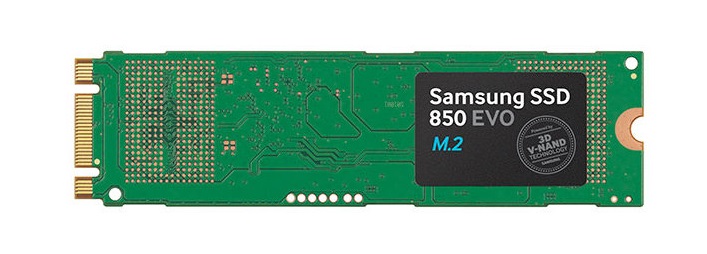ACE Data Recovery Announces Rescue Solution for Self Encrypted Samsung 850 EVO SSDs - Press Release
ACE Data Recovery Announces Rescue Solution for Self Encrypted Samsung 850 EVO SSDs
DALLAS, Sep. 06, 2018 - ACE Data Recovery today announced a technology that allows salvaging data from failed self-encrypted Samsung 850 EVO series solid-state drives (SSDs). ACE Data Recovery started working on a solution after an increase in data recovery requests for SSDs that were unreadable or unrecognized by a computer’s BIOS from HP, Dell, Lenovo, and other manufacturers.

Samsung began mass production of the 850 EVO series in 2015. The Samsung 850 EVO family of SSDs was the first one built on a new TLC 3D V-NAND flash memory. It also uses a new MGX dual core controller that supports AES-256 encryption, is compliant with advanced security management solutions (TCG Opal and IEEE 1667), and utilizes a Turbowrite technology with a flash SLC cache. By default, all data pages inside the Samsung’s 850 series SSDs are encrypted, and the encryption-decryption process is completely transparent to users. The Self-Encrypting Drive (SED) technology helps customers to protect their data but also creates issues when a drive fails, and the data needs to be extracted from it.
The Samsung 850 EVO data recovery add-on for ZCopy Ultra, an ACE Data Recovery’s proprietary hardware and software data rescue technology, enables data extraction even from the locked-down SED solid-state drives. “Usually, we recover 99% or more of customer data,” said Yevgeniy Tolkunov, CEO of ACE Data Recovery. “The percentage of files we can recover depends on an SSD’s memory cells’ wear condition and level of metadata corruption at the time when the firmware locks down the drive. Typically, less than 1% of data pages become damaged. The Samsung’s TLC 850 EVO drives reach the point of failure much faster than the Samsung’s MLC 850 PRO drives because of the lower endurance.”
The developed solution rebuilds Flash Translation Layer (FTL), a component of an SSD controller which maps Logical Block Addresses (LBA) from the host to Physical Block Addresses (PBA) of the SSD’s Flash NAND chips. The FTL’s mapping mechanism is critical because it often entirely defines the architecture of a drive. After the raw images of individual Flash NAND chips each being adjusted for the error correction are merged into the entire SSD’s image using the rebuilt FTL table, the solution then proceeds to decrypt the image.

“We are able to extract current AES encryption key from the drives,” continued Tolkunov. “This new technology allows us to recover data not only from Samsung 850 EVO but also from other SSDs built on the new MGX controller, including Samsung 850 PRO and PM871. For example, the PM871 SSDs are used in laptops from HP, Dell, Toshiba and Lenovo.”
About ACE Data Recovery:
ACE Data Recovery, provides services to businesses and individuals who experience data loss due to hardware failures, logical corruption, human error, or natural disasters. Since 1981, the company has recovered data from all types of media including HDD, SSD, RAID, SAN, NAS, flash drives, and tapes. Headquartered in Dallas, TX, the company also has two additional labs in Houston, TX and Chicago, IL and service centers in 29 major metropolitan areas. ACE Data Recovery offers free standard diagnostic evaluations and doesn’t charge if unable to recover critical files. For additional information, visit https://www.datarecovery.net or call 877-304-7189.
